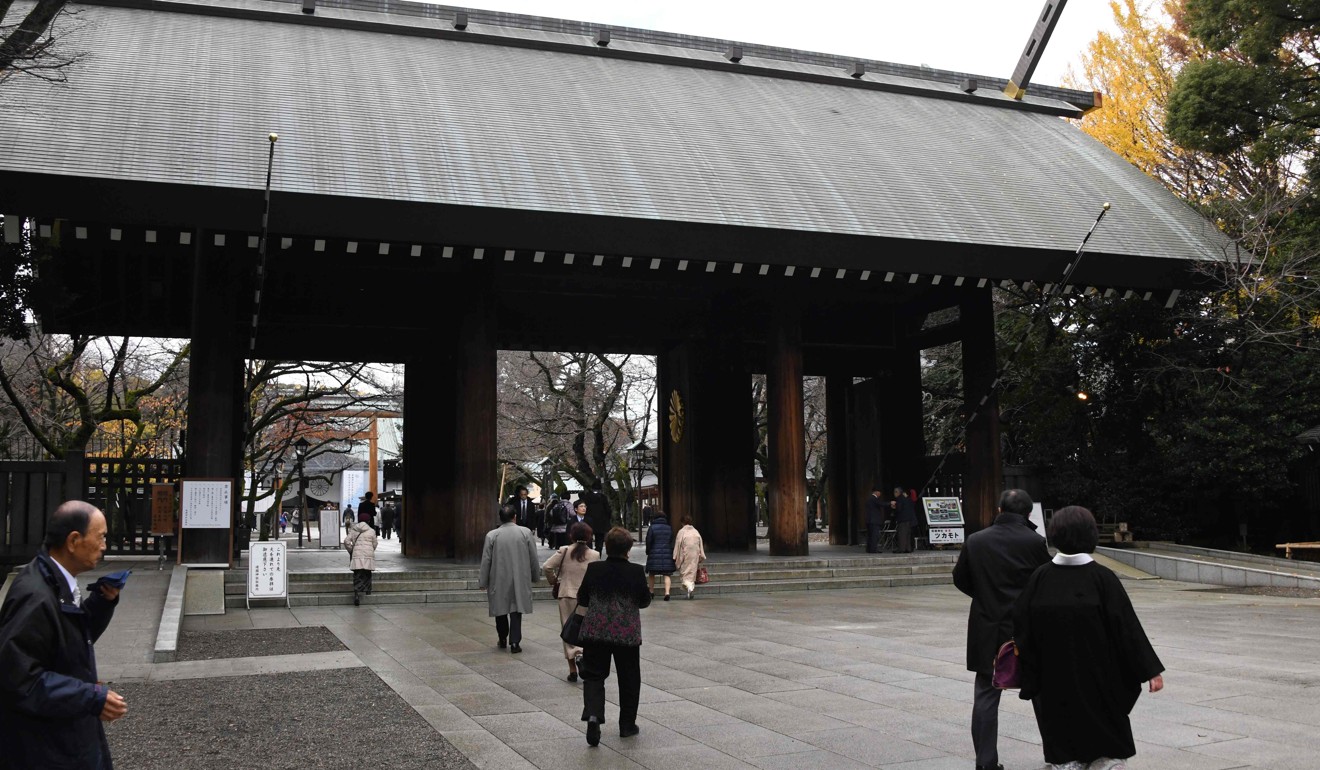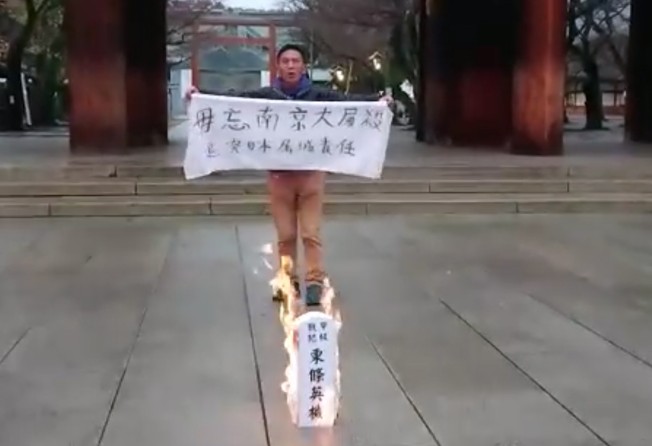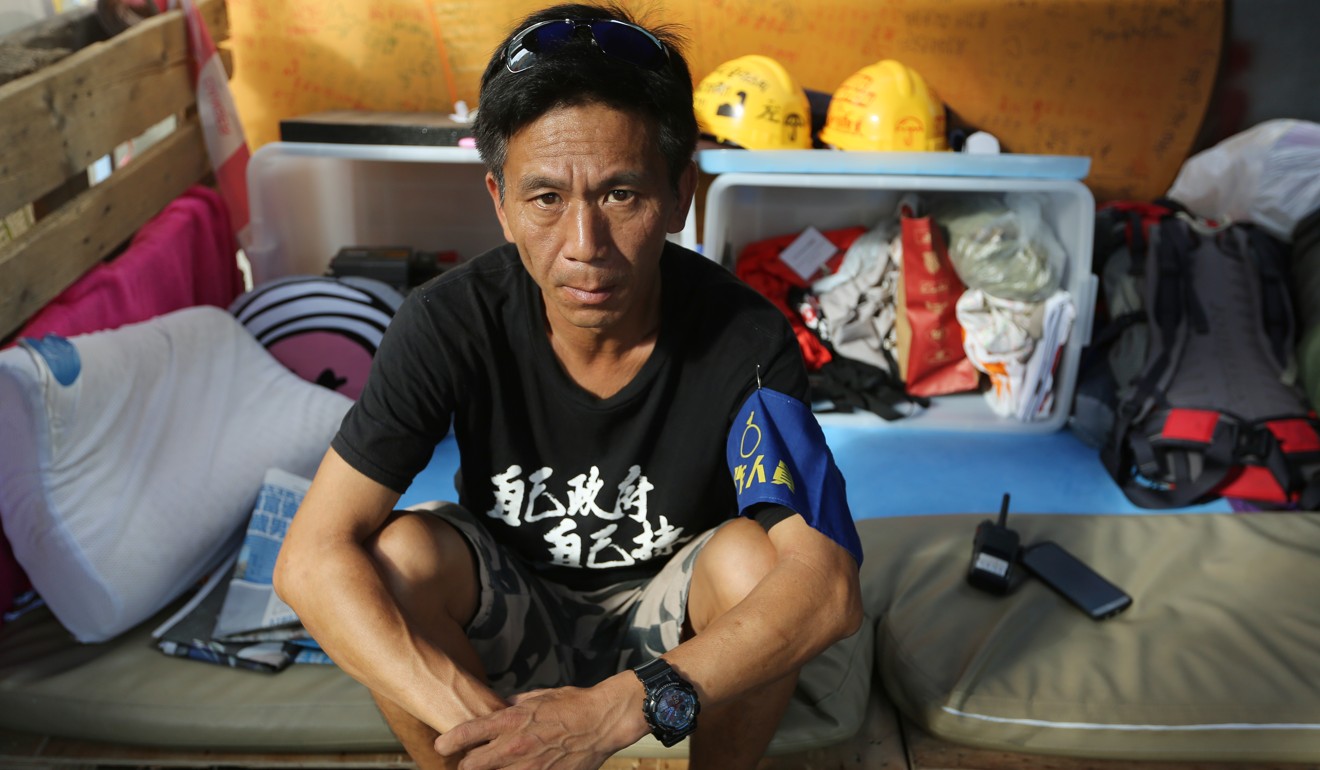
Further detention by Japanese immigration authority looms for Hong Kong activists arrested over protest at Tokyo’s Yasukuni Shrine
- Police can only detain pair till December 28, but immigration authority has stepped in and questioned their aim of entering Japan
- Duo held over act at controversial war shrine where they called for country’s government to apologise for Nanking massacre

Two Hong Kong activists arrested in Tokyo over a protest at a war shrine last week could be released by police on Friday but face further detention by Japan’s immigration authority, according to their lawyer.
Alex Kwok Siu-kit and Yim Man-wa, of the Action Committee for Defending the Diaoyu Islands, were arrested in Japan on December 12 on suspicion of trespassing at the capital’s Yasukuni Shrine and starting a fire at the site.
The shrine is dedicated to 2.5 million Japanese people killed in conflicts, including 14 of Japan’s top second world war criminals. It has been at the centre of frayed ties with the country’s Asian neighbours.

The pair’s lawyer Keiichiro Ichinose told the Post: “The court granted the Public Prosecutors Office’s request on Friday for the pair to be held [by police] until December 28.” He added that the intention was for more examination of evidence and questioning to be done.
“A public prosecutor questioned Yim on Friday, and is expected to question Kwok on December 25,” Ichinose said.
Videos posted on the Facebook page of the Action Committee for Defending the Diaoyu Islands, which claimed responsibility for the actions of the two, showed Kwok burning a symbolic ancestral tablet of Hideki Tojo, the country’s wartime prime minister, who was executed in 1948.
Lawyers earlier argued that Yim was not guilty of trespassing as she merely filmed Kwok’s act.
Despite the prosecution’s apparent determination to pursue the case, Ichinose said he believed there was only a 10 per cent chance Yim would be charged for trespassing when her police detention expires on December 28.

“The chance Kwok will be charged for trespassing was slightly higher, at 25 per cent,” he said.
The lawyer previously argued in court that the pair’s detention was unjustified because freedom of speech and all other forms of expression were guaranteed under the Japanese constitution.
However, even if police release the duo on December 28, they may not be able to return to Hong Kong immediately.
Ichinose said the Tokyo Immigration Bureau on Thursday questioned the pair’s reason for entering the country.
“They could be detained by the bureau upon their release [by police],” the lawyer said.
The activists’ allies in Hong Kong previously feared they might be charged with arson – an offence punishable by a life sentence in Japan, but Ichinose clarified that it was not possible. “Arson involves the cause of public danger, but there is no such risk in this case.”
The pair went to the shrine in Tokyo at about 7am last Wednesday to call for the Japanese government to apologise for the Nanking massacre, which took place between December 1937 and January 1938.
China says 300,000 people died under the brutality of the Japanese military as they destroyed the city now known as Nanjing. The occupation remains a source of bad blood between the two Asian powers.
The Action Committee for Defending the Diaoyu Islands is a Hong Kong-based activist group that asserts Chinese sovereignty over the isles in the East China Sea, which have been at the centre of a long-standing dispute between China and Japan.